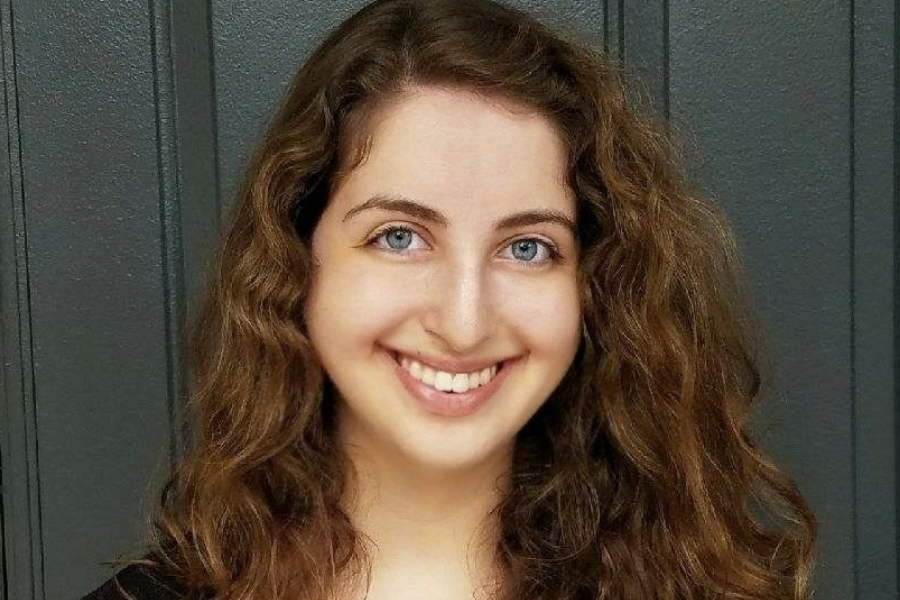Daryn Sagel

"A chance to explore your passions"
College: Arts and Sciences
Degree Program: Computational Science (Fire Dynamics)
Degree: Doctorate
Why FSU?
I attended FSU for my undergraduate degree, studying physics and applied math. I developed a strong interest in fluids during my sophomore year and was introduced to the Geophysical Fluid Dynamics Institute (GFDI). I continued research at GFDI throughout the rest of my undergraduate career, and had an idea for a project in the Fire Dynamics group during my senior year. I ended up pursuing a Master's degree at FSU so I could work on this project and continue learning from the same incredible professors and environment. I left FSU to work in industry after completing my Master's but later returned for a PhD to continue the same project and, hopefully, bring it to completion. I am also a huge fan of all the incredible outdoor activities easily accessible around Tallahassee (hiking, kayaking, parks, etc.) and was very happy to be back in the area.
Motivation to pursue a graduate degree
Toward the end of my senior year, my only goal in terms of "next steps" was to spend more time working on my fire dynamics project, and attending graduate school at FSU seemed like a great way to accomplish this goal. While I could have kept working without attending school, I knew that I (and my code) would benefit from taking additional courses specific to my area of interest. Attending graduate school also opened up more opportunities to present my research at conferences and learn from other presenters, which is now one of my favorite ways to learn new methods and make new contacts.
Importance and/or impact of research and work
My research involves developing computer vision algorithms to study fire and plume behavior. I design fire experiments and attend prescribed burns, then film fire and plume activity with visual and infrared cameras, and process these videos to obtain useful data. The method I created allows me to track small-scale features of fire spread, turbulent plume behavior, fire-atmosphere coupled interactions, and so on. Statistical analysis of this data leads to descriptions of fire behavior mechanisms that either agree with existing literature or uncover something new! Examples of how this information can be further applied are incorporating spread rates into computer models that predict how a fire will spread or predicting where a plume may travel. In the future, this research could potentially impact fire planning, resource allocation, or health and safety warnings for individuals in areas experiencing fire.
Career aspirations
I'm not entirely sure what I want to do after graduating, but I know I want to continue working in jobs that allow me to solve useful science problems with the tools I have learned. I definitely enjoy working in fire dynamics, and there are many other fields that use math, physics, and computer vision principles to solve complex problems.
Advice for anyone considering graduate school
My graduate school experience would not be as positive as it is without the people I'm surrounded by. Educators in the departments I have been part of at FSU have been very open to talking and spending time working on my interests, even as an undergraduate. I was lucky to find my current graduate advisors as a sophomore, and they have been incredible about supporting my work and curiosity over the past six years. The research group I joined is fairly close-knit and the students do activities together outside of work. All of this contributes to me feeling comfortable, supported, and happy doing the work I'm doing now. If possible, I hope others considering graduate school get to know the professors and peers in the group they join and make sure it is a positive environment for them, too.
Accomplishments during academic career
I am happy to have received a couple of awards: Art in STEM (2017), 2nd place in the 3MT Competition (2021), and the Ermine M. Owenby Jr. Fund to Promote Excellence (conference travel scholarship). I am also a member of Sigma Pi Sigma whose admission is awarded based on physics coursework GPA.
I helped develop a curriculum for and instructed Create with Code, a free summer camp designed to introduce high school students to coding for science, give them tools needed to explore their interests, and succeed at programming. Getting to work with these kids and watch them gain confidence as they learned was an awesome experience. I also completed certifications for wildland firefighting as part of my research, and participating in prescribed burns. Going in the field to collect experimental data is one of my favorite parts of fire dynamics research. Lastly, I recently published a paper! This experience opened up the door for several conference and colloquium talks, most recently at the American Geophysical Union meeting in December 2021.
